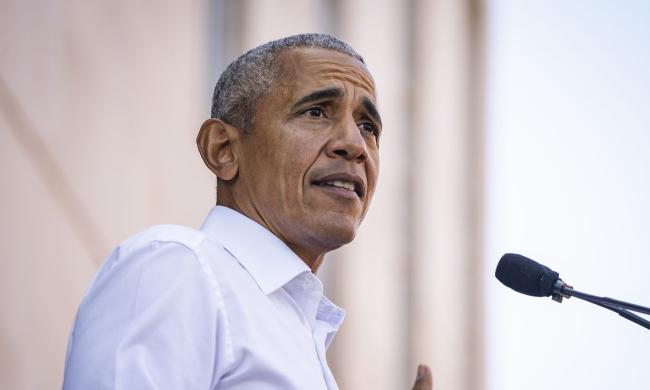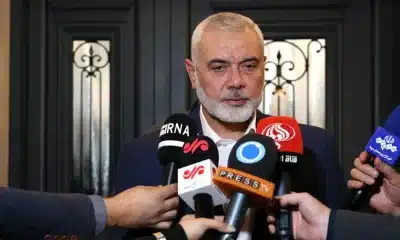Nigeria News
Israel-Hamas Crisis: US Ex-President, Obama Reacts To Conflict

Former United States (US) President, Barack Obama, has reacted to the ongoing Israel-Hamas crisis that has claimed thousands of live.
The US former leader said he was totally in support of President Joe Biden’s call to support Israel as an old time ally in the crisis.
He explained that Israel has every right to defend its people and territory against any threats and the US, just as President Biden said, is in full support of that.
Naija News reports that Obama, in a statement released on Monday, however, explained that as much as Israel has the right to defend its people against any wanton violence by Hamas, it should be done within the provisions of international law, which clearly states that civilians should not suffer from such attack.
Obama said, “It’s been 17 days since Hamas launched its horrific attack against Israel, killing over 1,400 Israeli citizens, including defenseless women, children and the elderly.
“In the aftermath of such unspeakable brutality, the U.S. government and the American people have shared in the grief of families, prayed for the return of loved ones, and rightly declared solidarity with the Israeli people.
“As I stated in an earlier post, Israel has a right to defend its citizens against such wanton violence, and I fully support President Biden’s call for the United States to support our long-time ally in going after Hamas, dismantling its military capabilities, and facilitating the safe return of hundreds of hostages to their families.
“But even as we support Israel, we should also be clear that how Israel prosecutes this fight against Hamas matters. In particular, it matters — as President Biden has repeatedly emphasized — that Israel’s military strategy abides by international law, including those laws that seek to avoid, to every extent possible, the death or suffering of civilian populations.
“Upholding these values is important for its own sake — because it is morally just and reflects our belief in the inherent value of every human life.
“Upholding these values is also vital for building alliances and shaping international opinion — all of which are critical for Israel’s long-term security.
“This is an enormously difficult task. War is always tragic, and even the most carefully planned military operations often put civilians at risk.”
The former US president noted that it is possible to champion Palestinian rights and reject certain policies of the Israel government in the West Bank and Gaza without being anti-semitic
He advanced that, “Finally, in dealing with what is an extraordinarily complex situation where so many people are in pain and passions are understandably running high, all of us need to do our best to put our best values, rather than our worst fears, on display.
“That means actively opposing anti-semitism in all its forms, everywhere. It means rejecting efforts to minimize the terrible tragedy that the Israeli people have just endured, as well as the morally-bankrupt suggestion that any cause can somehow justify the deliberate slaughter of innocent people.
“It means rejecting anti-Muslim, anti-Arab or anti-Palestinian sentiment. It means refusing to lump all Palestinians with Hamas or other terrorist groups.
“It means guarding against dehumanizing language towards the people of Gaza, or downplaying Palestinian suffering — whether in Gaza or the West Bank — as irrelevant or illegitimate.
“It means recognizing that Israel has every right to exist; that the Jewish people have claim to a secure homeland where they have ancient historical roots; and that there have been instances in which previous Israeli governments made meaningful efforts to resolve the dispute and provide a path for a two-state solution — efforts that were ultimately rebuffed by the other side.
“It means acknowledging that Palestinians have also lived in disputed territories for generations; that many of them were not only displaced when Israel was formed but continue to be forcibly displaced by a settler movement that too often has received tacit or explicit support from the Israeli government; that Palestinian leaders who’ve been willing to make concessions for a two-state solution have too often had little to show for their efforts; and that it is possible for people of good will to champion Palestinian rights and oppose certain Israeli government policies in the West Bank and Gaza without being anti-semitic.
“Perhaps most of all, it means we should choose not to always assume the worst in those with whom we disagree.”










